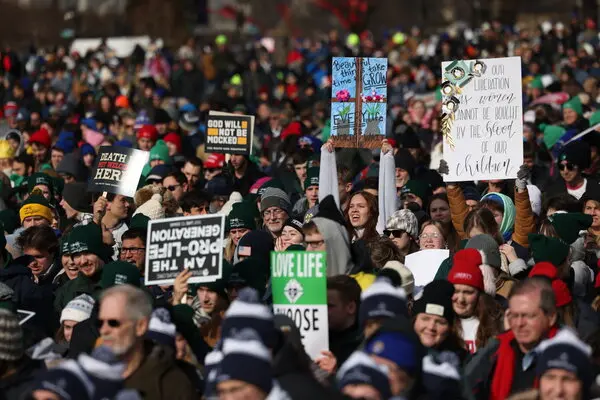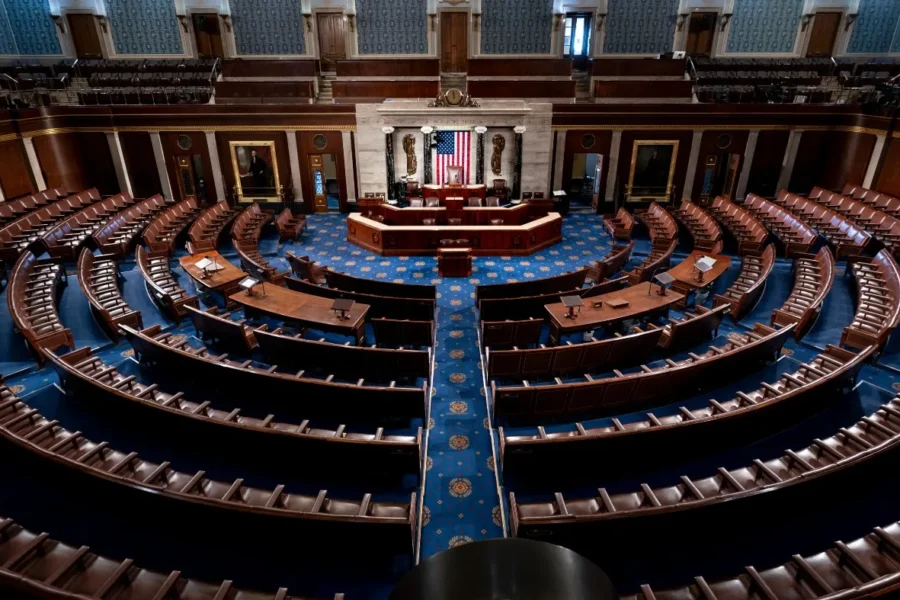What do you have on your walls? As I look around my office, I can see my law degree, signs I have carried in protests and rallies to defend life, and most importantly, pictures of my precious children. What you choose to hang on your walls tells the story of who you are and what is important to you. But if the state of California has its way in a case before the U.S. Supreme Court, volunteers who care for pregnant women in need may be forced to use their walls to promote abortion instead.
California has long promoted abortion on demand, and even forces taxpayers to pay for elective abortions through its state Medicaid program. But one of their latest efforts is really beyond the pale. Abortion advocates in the state recently became alarmed that the burgeoning number of pro-life Pregnancy Care Centers (they now outnumber abortion facilities nationally 5 to 1) neither offer abortions to their clients, nor refer women for them. To do so would be antithetical to their mission. But in response, groups such as NARAL and Planned Parenthood convinced California to pass AB 775, which requires pregnancy centers to post signs on the walls of their waiting rooms (or by other means) informing clients that California offers “immediate free or low-cost access” to abortion, along with the phone number of the county social services office. In other words, this requirement would force pro-life doctors, nurses, and staff to advertise for free abortions, plain and simple.
Pregnancy Care Centers affiliated with the National Institute of Family and Life Advocates (NIFLA) were rightly concerned that California was denying their First Amendment rights by forcing them speak views contrary to their belief that elective abortion isn’t healthcare, and brought a lawsuit challenging the posting requirement. The case has now found its way to the U.S. Supreme Court, where the Justices will hear arguments on March 20.
Americans United for Life was privileged to file a friend-of-the-court brief on behalf of several national medical organizations, who represent thousands of healthcare professionals who volunteer for or support Pregnancy Care Centers in California and around the nation. Pregnancy Care Centers are non-profit charities that provide care and encouragement for expectant women to choose to carry their pregnancies to term. They offer free information and educational resources on prenatal development, adoption, and parenting; access to social services resources available to new mothers; physical resources such as baby clothing, diapers, and formula; and referrals for structural supports like housing and employment. The medical professionals who volunteer at Pregnancy Care Centers are on the front lines of care for women undergoing difficult pregnancies, including emergency physicians and other staff who treat urgent and serious complications after abortion and other clinical staff.
In their care for patients, these conscientious doctors and nurses follow the ethical guidelines expressed in the Hippocratic Oath, which the Supreme Court in Roe v. Wade called “the nucleus of all medical ethics.” In affirming the well-established right not to offer medical services in violation of one’s conscience, the Roe Court cited favorably an American Medical Association resolution that stated that “no physician or other professional personnel shall be compelled to perform any act which violate[s] his [or her] good medical judgment [or] … to perform any act violative of personally held moral principles.”
Similarly, the freedom to speak — or not to speak — based on your moral principles is a bedrock principle of our nation, enshrined in the Free Speech Clause of the First Amendment. There are certain narrow exceptions, including appropriate informed consent regulations of the physician-patient relationship when a particular medical procedure is offered. Undoubtedly, the state has the right and responsibility to ensure that women who are considering going through with an abortion receive all of the relevant information before undergoing such an invasive medical procedure. While Pregnancy Care Center counselors do offer women truthful information about the risks of abortion, AUL’s brief to the Supreme Court pointed out that there is clearly no informed consent exception here that would give California the authority to require them to provide information on a procedure that they do not offer.
If you looked at my walls, you would easily be able to see parts of my life journey and the values I hold dear — my love for my family, my passion for the unborn, and my dedication to the law. Likewise, when scared women enter a Pregnancy Care Center seeking help in a vulnerable situation, the walls they see should represent the care and compassion those Centers promote. Walls can talk, and the Supreme Court should make sure everyone is free to decide what stories their walls will tell.
Catherine Glenn Foster, M.A., J.D., is president and CEO of Americans United for Life.
This article originally appeared in The Hill on March 19, 2018.




